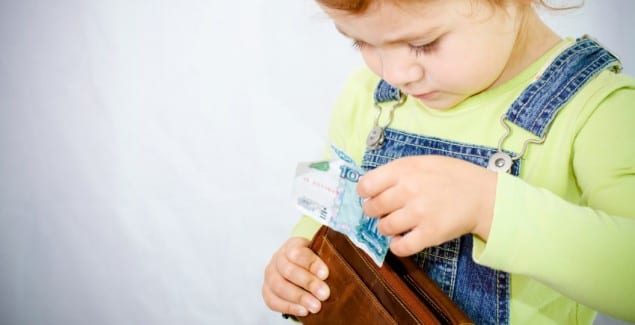Stating that the process of adaptation to school can be different for each child, Psychiatrist Prof. Dr. Nevzat Tarhan emphasized the importance of individualization in school adjustment.
Prof. Dr. Nevzat Tarhan: “The dependent relationship between mother and child causes school phobia”
prof. Dr. Nevzat Tarhan noted that the child begins to become individualized from the age of 3 and this period must be supported by the mother. Stating that if the child-mother relationship is dependent, a lack of self-confidence arises in the child. Dr. Nevzat Tarhan warned, “This situation may affect the adaptation process to school in the future and school phobia may arise”. Tarhan recommended that the child be sent to school from the age of 3 for the development of the child's social and emotional skills.
Üsküdar University Founding Rector, Psychiatrist Prof. Dr. Nevzat Tarhan made evaluations about the difficulties experienced in the process of adaptation to school.
The child must be mentally accustomed to school
Stating that the process of adaptation to school can develop differently in every child, Prof. Dr. Nevzat Tarhan said, “Starting school means a new period for a child. Going to and from a place other than a familiar, safe environment is like going to an alien planet if the child is not mentally prepared. You are in the world right now, you are used to its air and oxygen. How do you feel when you go to the moon? For the child, going to school creates such feelings and fears if he is not mentally ready. If the child is mentally ready, he can easily adapt in such situations. For this reason, taking the child like a kitten without getting ready for school and leaving it from one place to another with a bang will have a shock and trauma effect for the child.” he said.
After the age of 3, the period of individuation begins
Noting that the child entered the process of individualization after the age of 3, Prof. Dr. Nevzat Tarhan,
“A child between the ages of 0-3 sees himself as a part of the mother. The mother also sees the child as a part of herself, but the child begins to learn that she is a separate individual from the time she starts walking. She learns that she is a separate person, the difference between other people's feelings and her own. If you put all 1-year-old children in the same room, if someone starts crying, they all start crying at the same time. Because she hasn't learned the difference between someone else's pain, her pain and her own pain yet. There are mirror neurons in the brain. These mirror neurons do mind reading, which we call theory of mind. He reads the other person's mind, reads his own mind and gives the right response. Since this does not develop in children, he thinks that when someone else hurts, he also hurts, and he starts to cry too. However, after a while she learns to distinguish, "He's hurting somewhere, but it's not my pain, it's his pain". The child usually learns this at the age of three.” he said.
Dependent relationship between mother and child leads to school phobia
Noting that if the child-mother relationship is a dependent one, that is, if the mother is anxious and very protective, a lack of self-confidence arises in the child and this situation may affect the school adjustment process in the future, Psychiatrist Prof. Dr. Nevzat Tarhan said:
“After the age of three, the child now needs to socialize, that is, gradually move away from the mother. Most of the mothers cannot do this most of the time. The mother's relationship with the child is often so strong that the mother also likes it. She sleeps in the same bed with the child. From the time the child starts to turn one year old, they can be in the same room until the child turns 7, that is, until school starts, but it is inconvenient to be in the same bed. His child's relationship with his mother is sticky. If the child has not developed self-confidence, when the child goes to school, he starts to cry all day. We know many families waiting at the door for three years and five years. If his mother isn't there, the kid is making a scene in the classroom. It's called school phobia." said.
The mother should support the individualization of the child
prof. Dr. Nevzat Tarhan stated that when the child has school phobia, he forcefully gets on the bus and cries all the time, and stated that if the mother gives up sending the child to school in such cases, the child cannot learn individualization and self-confidence cannot develop. prof. Dr. Tarhan added that the individualization of the child must be supported by the mother.
The child must climb into that seat himself.
prof. Dr. Nevzat Tarhan stated that the sofa experiment, which is very common in our culture, is an important example of this, “It is necessary to contribute to the individualization of the child. For example, the child wants to get on the sofa. He walks and begins to know life. He wants to get on the couch, he tries, he tries, he can't get out. What does our traditional mother do? Oh, he takes it to the seat so that the child does not fall. The child is on the couch, he is happy, but the child does not succeed on his own. Whereas, that child will be happy after he gets on the seat himself. We take that feeling away from the child. This is the foundation of self-confidence.” he said.
His mother should be with him when he goes to the seat.
Noting that in Western societies, the child is left alone while climbing on the sofa, Prof. Dr. Nevzat Tarhan said, “They are not interested in the child there. The child falls, gets up and comes out, but this time the mother-child bond weakens. For her, the ideal thing here is that the mother will stand next to the child while the child is trying to get on the couch and say, "Get out, if you manage to get out, I'll hold you if anything happens." In such a situation, the child will come out and be successful and will say, 'I did it'. The mother-child bond will also be healthy. If we create the motherhood model like this, the child goes to school easily after a while and adapts.” he said.
Child learns social and emotional skills at school
Pointing out the importance of the child's learning of social and emotional skills, Prof. Dr. Nevzat Tarhan said, “Children today cannot learn social and emotional skills by themselves. Children can learn to understand and empathize with the feelings of others through social contact. Today, there are apartment children and television children. Now, there is no concept of neighbor children or neighborhood environment as before. For this reason, we recommend that the child be given to the nursery immediately when he turns 3 years old. Even if the child goes to the nursery for half a day, he immediately learns social skills. There he learns to play and share together. The human child is born psychologically premature. That is, he is born prematurely, he is born unlearned. For this reason, the child psychosocially needs a mother, father and family until the age of 15. He needs to be in a social structure, to learn social skills, emotional skills.” he said.
The mother and father will be the pilot for the child.
Psychiatrist Prof., who shows the model of pilot captain to families in supporting the child. Dr. Nevzat Tarhan said, “There is a pilot on the ships besides the captain. The pilot is senior, experienced. Mom and dad will be pilots. In our culture, parents take the helm and direct the child's life. It interferes with everything like 'don't do it, don't touch it, don't wear it'. The child cannot learn by himself. However, the parents will be the pilot. The child needs their guidance.” he said.
Primary school teachers are the child's heroes
Stating that teachers, as well as families, have responsibilities in adapting to school, Psychiatrist Prof. Dr. Nevzat Tarhan said, “Teachers are the second person from whom children choose exemplary models. Especially primary school teachers are the heroes of our children. Teaching is a sacred profession. Especially primary school teaching, classroom teaching is a very sacred profession. Because, after their parents, those children learn the most about life from their teachers, and they take their teachers as an example.” said. prof. Dr. Nevzat Tarhan emphasized that teachers should not be changed frequently, especially in primary school.
Teacher's guidance is very important
Psychiatrist Prof. Dr. Nevzat Tarhan also stated that an experienced teacher should understand the child's problem from his behavior and said, “The teacher will notice him. Education is like medicine. Physicians are like butterfly hunters. They catch disease and symptoms. They seek, find, catch and solve the problem. In other words, a teacher should understand the problem that the child is experiencing from his behavior. Children of that age cannot explain verbally. Since they cannot explain it with the language of words, they explain it with the language of behavior. The guidance of the teacher is therefore very important here. So pedagogical experience is important. Why is this child afraid? He is afraid of being alone. He lacks self-confidence, maybe this child is separated from his mother for the first time. They may have such fears. The child needs direction.” said.







0 yorum :
Post a Comment